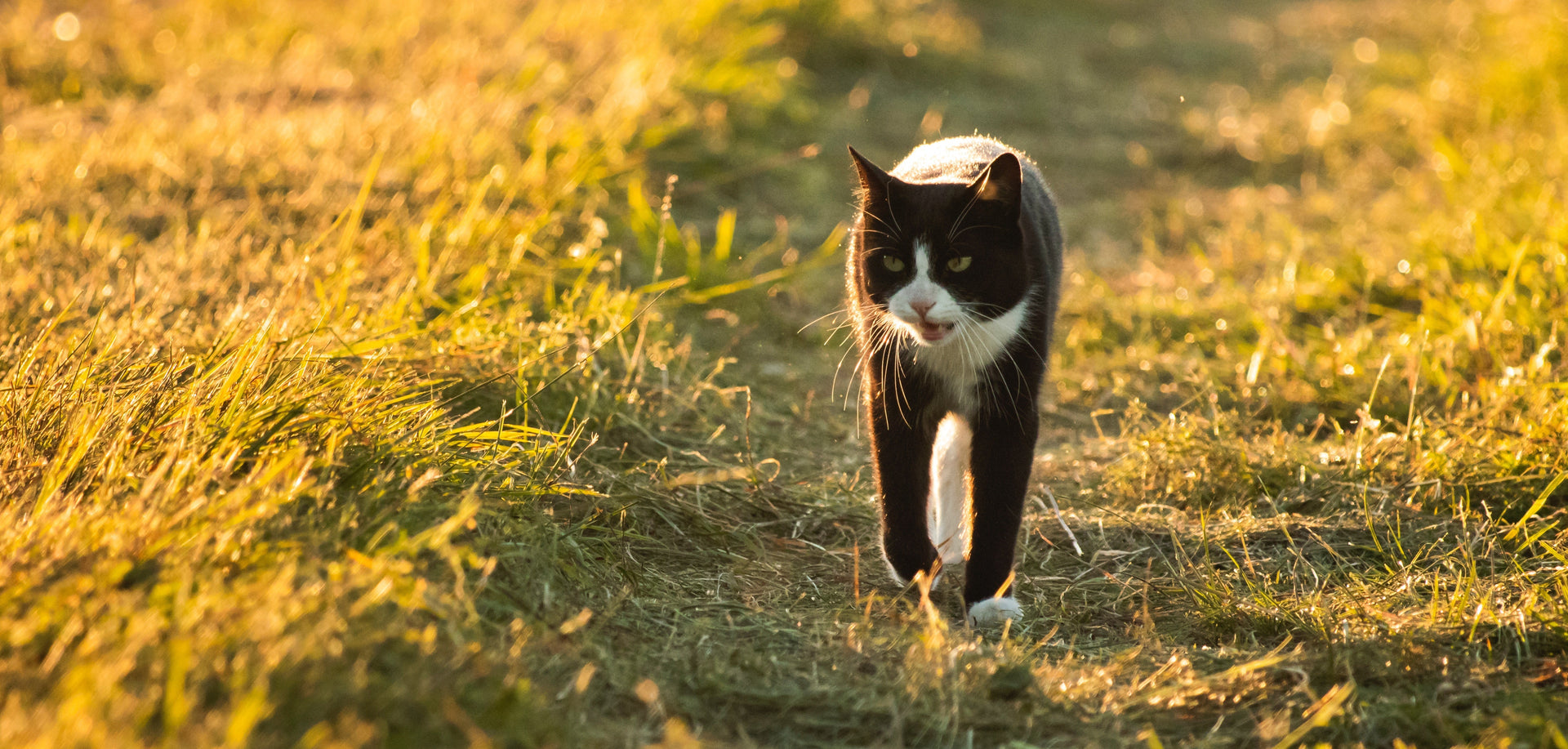How to Help Your Cat With Anxiety
June 19, 2023

Cats may have a reputation for being aloof or independent, but they can be as susceptible to anxiety as any other pet. Whether it's a fear of strangers, a dislike of loud noises, or uneasiness about changes in the home, feline anxiety can manifest in many ways.
We’ll walk you through understanding anxiety in cats, recognizing its signs, and using practical tips to help manage it.
Signs of Anxiety in Cats
Just like their canine counterparts, cats can also experience fear and anxiety. It's important for cat owners to recognize the signs and symptoms so they can take steps to help their feline friends.
Here are some signs of fear and symptoms of anxiety in cats:
- Hiding: One of the most common signs of fear and anxiety in cats is hiding. Cats may hide in response to new people, loud noises, or changes in the environment.
- Aggression: Anxious cats can often become aggressive. This can manifest as hissing, biting, or scratching, especially if the cat feels cornered or threatened.
- Excessive grooming: Over-grooming or grooming to the point of causing skin damage can be a sign of anxiety in cats.
- Changes in Eating Habits: Cats experiencing fear or anxiety might eat less or stop eating altogether. On the other hand, some anxious cats may overeat.
- Elimination Outside the Litter Box: If your cat is suddenly urinating or defecating outside their litter box, it could be a sign of anxiety. However, this could also be a sign of a medical problem, so a vet checkup is necessary.
- Pacing: Similar to humans, an anxious cat might pace back and forth.
- Change in Sleep Patterns: An anxious cat may sleep more than usual, or they may be restless and sleep less than normal.
- Increased Vocalization: An increase in vocalization, such as excessive meowing, can be a sign of anxiety in cats.
- Sudden Changes in Behavior: Any sudden behavioral change can indicate fear or anxiety. This includes being more clingy or, conversely, more distant.
- Dilated Pupils: This can be a sign of fear or anxiety, but it's often hard to notice unless you're looking for it.
- Diarrhea: Anxiety can cause diarrhea in cats, just like stress may upset your own stomach. If you notice excessive loose or runny stools, your cat may be suffering from anxiety.
Why Cats Become Anxious
Anxiety in cats is a broad term that can refer to a variety of fears, phobias, or anxieties leading to abnormal behaviors. Anxiety often stems from a fear response. Something in your cat's environment or experiences has triggered a fear reaction, and this fear has developed into an anxiety disorder over time.
Common sources of anxiety can include:
- Household changes: Changes in the household, such as moving or introducing a new family member or pet.
- Trauma: Past trauma or negative experiences, especially in rescue cats.
- Separation: Separation anxiety, which is less common in cats than dogs but can still occur.
- Medical problems: Medical issues or illnesses that cause discomfort or distress.
Understanding the potential causes of your cat's anxiety is a crucial first step in managing it. A vet or a professional cat behaviorist can be invaluable in helping identify these triggers.
Tips for Managing Anxiety in Cats
The way you approach your cat’s anxiety will shift based on what’s causing it. But, here are some of the ways you can help your cat calm down:
- Maintain stability: Cats thrive on routine and can become anxious when their environment changes unexpectedly. Try to keep your cat's routine as consistent as possible, including feeding times, playtimes, and sleep times. If changes are necessary, try to introduce them gradually.
- Find hiding places: Ensure your cat has safe, quiet spaces in your home where they can retreat and relax. This could be a specific room, a cat tree, or even a cardboard box. If your cat likes to hide when they're anxious, make sure they have access to suitable hiding places.
- Desensitization: If your cat is anxious around strangers or other animals, gradual desensitization can help. This involves slowly and gently introducing your cat to the source of their anxiety in a controlled way, rewarding them for calm behavior, and gradually increasing their tolerance.
- Playtime with your cat: Interactive play can be a great stress reliever for cats. Regular play sessions can help distract your cat from their anxiety, provide valuable exercise, and strengthen your bond.
- Release pheromones: Products like Feliway mimic the calming pheromones that cats produce naturally, helping to create a more relaxing environment.
The Gut Health Connection
You may notice your cat’s gut health, including eating and bathroom habits, takes a hit when they’re feeling anxious or stressed.
The connection between gut health and anxiety, often referred to as the "gut-brain axis," has been a topic of increasing interest in both human and veterinary medicine. Similar to humans, cats have a complex community of microorganisms in their gut, collectively known as the microbiome, which plays a vital role in digestion, immune function, and overall health.
Emerging research suggests that changes in the composition of the gut microbiome can influence mood and behavior, potentially contributing to anxiety. Stress and anxiety can also affect gut health, leading to gastrointestinal issues such as diarrhea or constipation.
Probiotics for Stressed Cats
Probiotics are beneficial bacteria that help maintain the health of the digestive system. They are increasingly being recognized for their potential to support gut health in cats, particularly those experiencing stress or anxiety.
When a cat experiences stress or anxiety, this can lead to changes in the gut environment, potentially disrupting the balance of the microbiota and leading to gastrointestinal issues. Probiotics can help restore and maintain a healthy balance of gut bacteria, support optimal digestion, and promote a strong immune system.
Some specific ways that probiotics, like Daily Cat, may help stressed cats include:
- Improved Digestion: Probiotics aid in the digestion of food by breaking it down into nutrients that the cat's body can absorb more easily. This can help prevent diarrhea and constipation, common issues in stressed cats.
- Enhanced Immune Function: A large part of the immune system is located in the gut. By promoting a healthy gut microbiota, probiotics can help support the immune system and enhance the cat's ability to fight off infections.
- Reduced Inflammation: Some strains of probiotics have anti-inflammatory properties. This can help reduce inflammation in the gut, which may be beneficial for cats with stress-induced gastrointestinal issues.
- Production of Feel-Good Chemicals: Some research suggests that certain types of bacteria in the gut can influence the production of neurotransmitters, like serotonin, which play a role in mood regulation. While more research is needed in this area, it hints at the potential for probiotics to indirectly support mood and anxiety management.
Treating Anxiety in Cats
As part of a comprehensive approach to managing stress and anxiety in cats, supporting gut health with probiotics can be a valuable tool. Use probiotics for cats in conjunction with other strategies, like maintaining a stable environment, providing plenty of play and enrichment, and seeking professional advice as needed.
Read More:
Probiotics and the Microbiota-Gut-Brain Axis
The Effect of a Probiotic Complex on the Gut-Brain Axis
Identification of Separation-Related Problems in Domestic Cats

